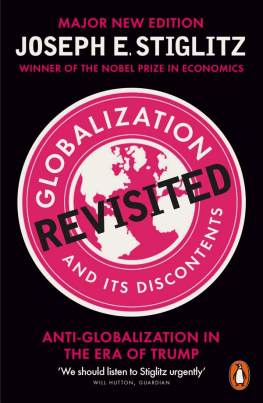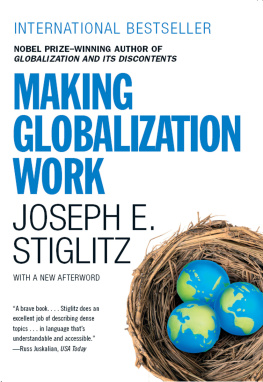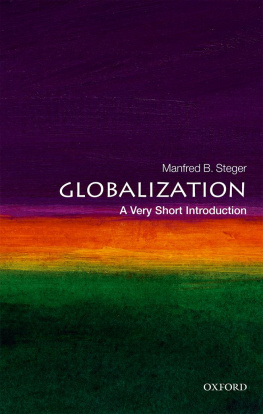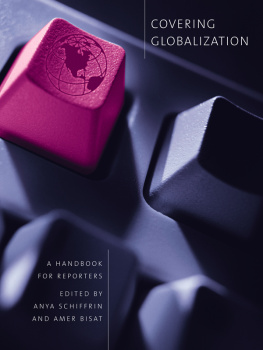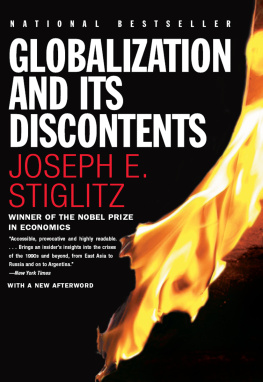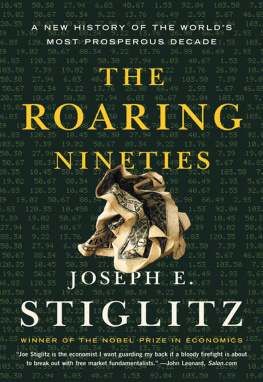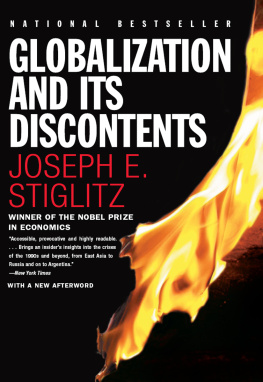Joseph E. Stiglitz
GLOBALIZATION AND ITS DISCONTENTS REVISITED
Anti-Globalization in the Era of Trump
Joseph E. Stiglitz was Chairman of the Presidents Council of Economic Advisers 19957 and Chief Economist at the World Bank 19972000. He is currently University Professor at Columbia University, teaching in the Department of Economics, the School of International and Public Affairs, and the Graduate School of Business. He is also the Chief Economist of the Roosevelt Institute and a Corresponding Fellow of the Royal Society and the British Academy. He won the Nobel Prize in Economics in 2001 and is the bestselling author of Globalization and Its Discontents, The Roaring Nineties, Making Globalization Work, Freefall, The Price of Inequality and The Great Divide, all published by Penguin.
PENGUIN BOOKS
GLOBALIZATION AND ITS DISCONTENTS REVISITED
A titan of the field Stiglitzs book will surely claim a large place on the public stage. It certainly stands as the most forceful argument that has yet been made against the IMF and its policies
Benjamin M. Friedman, New York Review of Books
Critiques of globalization are legion. This one is different. It is not just that its author is a Nobel Prize winner in economics. It is that Stiglitz, for most of his working life, has been at the centre of global change If anyone should know what went wrong, it is him
Bill Jamieson, Scotsman
A damning read This is a tale about misguided power and a proposal for a new path of reform and openness The book is compelling because Stiglitz is a first-rate storyteller
Suzanne Miller, Banker
What made you do it, Joe? What made you rock the boat? Because of him, a lot more taxpayers will know more about the international financial institutions which they fund. For that, we should congratulate him, even if his former IMF colleagues will not
Liam Halligan, Sunday Telegraph
Accessible, provocative and highly readable
Alan Cowell, The New York Times
Globalization and Its Discontents is a war story from inside the halls of the White House and the World Bank, the confession of a powerful economist with a political conscience and a healthy degree of common sense Lenora Todaro, Village Voice
A brilliant critique No one has so effectively identified the fundamental weaknesses in American capitalism since John Kenneth Galbraith published his original critique of the market economy, The Affluent Society, in 1958. That is Joseph Stiglitzs remarkable achievement
Geoffrey Goodman, Tribune
To my mother and father who taught me to care and reason,
and to Anya who put it all together and more
Introduction to Globalization and Its Discontents Revisited
Donald J. Trump became president of the United States on January 20, 2017, and threw a hand grenade into the global economic orderthe arrangements governing the movement of goods, services, and capital across borders and attempting to ensure stability. The United States was pivotal in the creation of this system in the aftermath of World War II. Partly because of this system, the second half of the twentieth century was markedly different from the first half, which was marred by two world wars and the Great Depression. The smoke has not yet cleared, but the post-Trump world will almost surely be different from what came before. While for three-quarters of a century efforts had focused on creating a more globally integrated world, entailing global supply chains that had enormously lowered the costs of goods, Trump reminded everyone: borders do matter.
In the beginning of this century, I wrote Globalization and Its Discontents (which, for brevity, I write as GAID going forward) to explain the unhappiness with globalization on display in so many countries in the developing world that I had been able to observe closely from
Now, globalizations opponents in the emerging markets and developing countries are joined by those in the middle and lower classes of the advanced industrial countries. Trump took advantage of this discontent, crystallized and amplified it. Trump explicitly blamed the plight of Americas Rust Belt workers on globalizationon the signing of the worst trade deals ever.
On the face of it, this is a remarkable claim. The United States and other advanced countries wrote the rules of globalization, and they run the international organizations that govern it. The complaint of those in the developing world was that the advanced countries had written the rules and managed these international organizations in ways that disadvantaged them. Yet, President Trump claimedwith enormous support from American votersthat the very trade agreements and other institutions that it shaped were unfair to America.
Populists in both emerging markets and advanced countries are giving voice to their citizens discontent with globalization, but just a few years the developed and developing world have become so hostile to it? Was it possible that not just the politicians, but also the economists, got it wrong?
One response occasionally heard from neoliberal economiststhose economists who believe that the freer the markets the better, and accordingly advocate for freeing up tradeis that people are better off, but they just dont know it. Their discontent
ALL IS NOT WELL IN THE ADVANCED COUNTRIES
The fact, though, is that large segments of the population in advanced countries have not been doing well. The New Discontents have taken power in the United States in the form of the Trump presidency partly because the United States does things bigger than othersincluding having more inequality than elsewhere, I use the United States as an illustration.
The Sobering Statistics
The data describing what has been happening in the United States are sobering: for nearly a third of a century the incomes of most Americans have been essentially stagnant. A middle-class lifea decent job with decent wages and a modicum of security, the ability to own a home and to send ones kids to college, with the hope of a reasonably comfortable retirementhas been moving increasingly out of reach for a large proportion of the country. The numbers in poverty have been increasing, as the middle is being eviscerated. The one group doing well has been the topespecially the top 1 percent and even more, the top .1 percent, the richest several hundred thousand Americans.
While moving up the ladder seems increasingly difficult, everyone knows someone who has fallen down: trying to avoid falling down the ladder has put increasing stress on individuals, or the United States, or the breakup of the Soviet Union.
It is not just in the United States that the middle class is suffering. My former colleague at the World Bank, economist Branko Milanovi, has studied how people in different segments of global income distribution have fared over the past quarter century, and he has found that the middle and working classes in Europe and the United States have experienced near stagnation. There are others that also seem not to have done wellincluding those at the bottom of the global income distribution (poor farmers in Africa and India, for example). As I explain in

